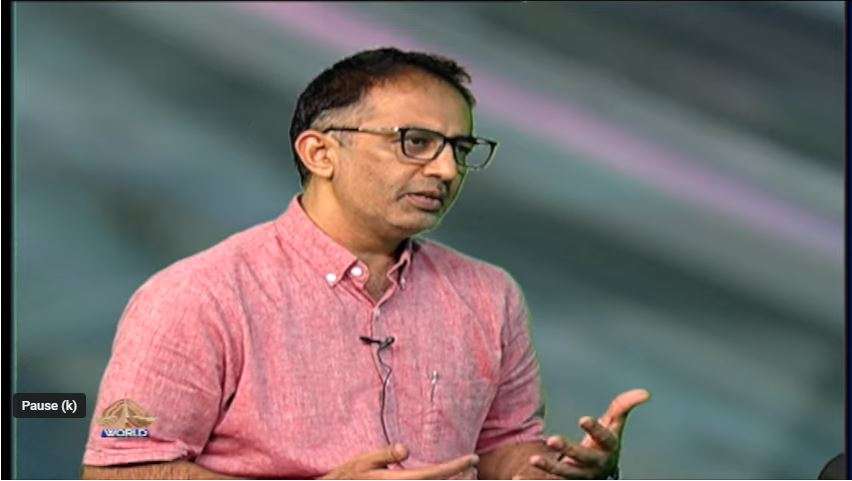PAKISTAN & EU:TRADE POTENTIAL
The Bottlenecks and Roadmap for Reforms
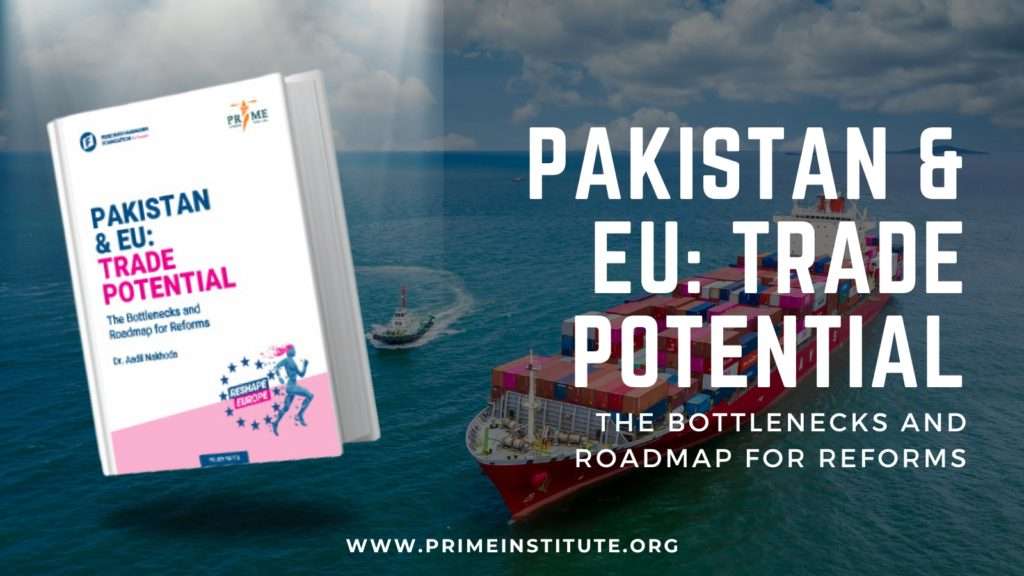

Trade plays a vital role in driving economic growth, but Pakistan’s trade performance has been volatile, with stagnant export growth and a rising trade deficit. The Generalized Scheme of Preferences (GSP) Plus is offered to a select group of exporters to the European Union (EU) based on a set of pre-defined criteria and the fulfillment of various conventions regarding human rights, labor rights, good governance, climate change and environment protection. Pakistan received the status on January 1, 2014. Pakistan currently is a signatory to all the 27 conventions and is also a signatory to the additional conventions proposed under a new revised scheme that is likely to replace the current one that is expiring at the end of this year. Although, Pakistan is not in imminent danger of losing the preferences awarded to its exporters, uncertainties loom as Pakistan faces challenges that can adversely impact its status. While Pakistan has experienced growth in trade with the EU during the GSP Plus period, it is imperative that the exporters continue to receive the preferences. To fully exploit trade potential and effectively compete with counterparts, it is essential to assess the trade patterns. This report undertakes a comprehensive exercise to not only determine the trading patterns with the EU but also bring forward recommendations that can help boost Pakistan’s exports to the EU and to the world.
This study outlines and evaluates the pattern of imports into the European Union (EU) from Pakistan, highlighting not only on the significance of the trading relationship between the EU and Pakistan but also emphasizing on the potential threats and risks if the preferences to Pakistani exporters offered through the GSP Plus Scheme are revoked. The main objective of this report is to identify the bottlenecks hindering trade growth between Pakistan and the EU and propose reforms to enhance bilateral trade relations such that Pakistan can benefit more from the GSP Plus scheme. The study undertakes a comparative analysis as it considers the trade patterns between the EU and Bangladesh, India and Vietnam. These three countries are major regional counterparts that are likely to influence the trading relationship between Pakistan and the EU.
Pakistan is the largest beneficiary of the GSP Plus scheme. The EU imported $9.1 billion from Pakistan in 2021, increasing from $5.4 billion in 2013. More than $6 billion of the imports in 2021 were under the GSP Plus preferences. The largest industry was the textile industry, accounting for approximately 80 percent of the imports. While imports into the EU from Pakistan in rice has increased significantly since 2017, the imports in leather have decreased. The share of leather products in imports decreased from 10 percent in 2013 to 5 percent in 2021. Further, the set of top market destinations in the EU for the four Asian countries is approximately the same, suggesting that import demand is likely to be generated from within these markets. This highlights the need to emphasize product diversification. Analysis on the patterns of imports in other non-traditional industries is crucial for policymakers seeking export diversification. This study further considers four major products from industries which are not traditionally export-oriented in Pakistan, namely denatured ethy-alcohol, medical instruments, inflatable balls, and footwear as products in which Pakistan has shown relatively higher potential in terms of trade with the EU.
This report presents various challenges with the help of different trade indicators. For instance, Pakistan reports higher values of revealed comparative advantage in the exports of textile products, leather products and rice, but Pakistan and Bangladesh report relatively lower unit values, particularly in the exports of textile products to the EU. Indian and Vietnamese exporters are less likely to compete against Pakistan in terms of the unit value of imports into the EU, while Pakistani exporters may face competitive pressures from Bangladeshi exporters. Further, this report considers the imposition of technical non-tariff measures and the degree of regulatory convergence achieved towards those imposed by the EU. Although the indicator on the adoption of NTMs scores high for the Asian counterparts of Pakistan, the indicator on regulatory convergence scores low for all countries. Pakistan with low frequency and coverage of technical NTMS, lacks technical NTMs on its imports. This suggests that Pakistan does not impose pre-defined measures to counter the imports of substandard and dangerous goods into the country as observed in its counterparts, which has implications on quality of goods imported and produced in Pakistan. Customs and transport-related firm-level obstacles are briefly discussed towards the end of the report. Pakistani firms are the most constrained in this aspect.
One of the more important findings highlighted in this report is that the revocation of the GSP Plus status will lead to a trade loss of more than $3 billion, with significant loss in exports of bed linen, and men’s and women’s trousers. The biggest market affected will be Germany. The loss of $3 billion is significant as Pakistan faces critical balance-of-payment related challenges. Hence, it is crucial that all efforts are made to ensure that Pakistan complies with all the requirements to continue with the status. The loss of status will have a profound impact on the economy.
Click below to download the report:
Pakistan-and-EU-trade-potential.pdf
For inquiries, please contact info@primeinstitute.org or call at 03330588885.
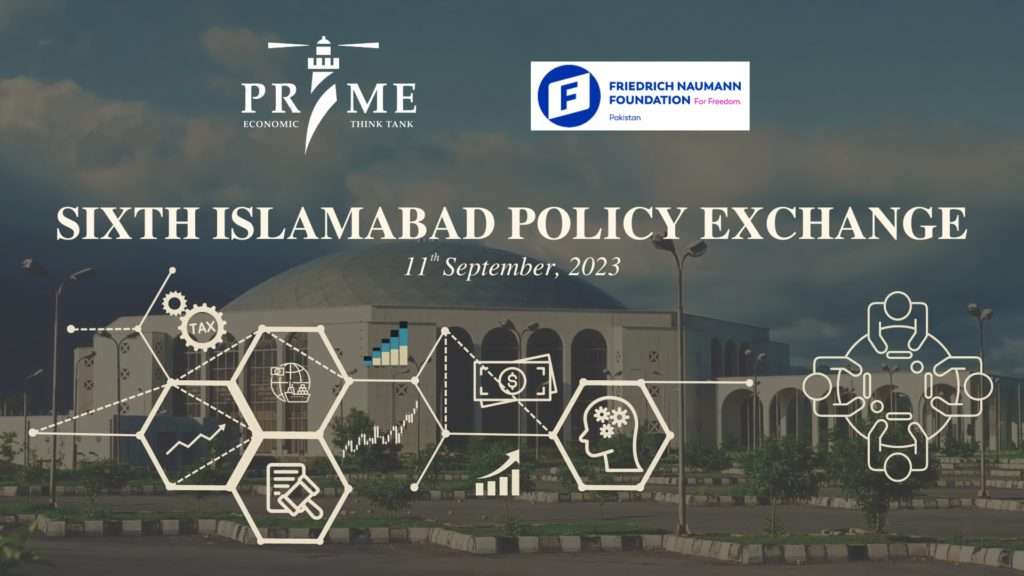
If the implementation of Minimum Energy Performance Standards (MEPS) and Energy Efficiency Conservation Policy (EECP) is successful, a $1bn investment in energy efficient technologies could lead to a benefit of over $6 Billion.
This was shared in the 6th Islamabad Policy Exchange organized by PRIME (Policy Research Institute of Market Economy) on 11th September 2023. The event was attended by policy practitioners from the government and the private sector.
The discussion revolved around an introduction to EECP and MEPS in Pakistan, put forth by National Energy Efficiency and Conservation Authority (NEECA).
The Islamabad Policy Exchange is a forum for candid discussions for policy stakeholders, held under Chatham House rules.
The audience was informed by experts of how the new policies work, what systems must be put in place to facilitate the policies and how to advocate for these policies.
Experts highlighted the requirements for developing a system for facilitation of MEPS and EECP. A new culture of efficient energy usage must be adopted by the people of Pakistan, be it through the use of advertisements, or NEECA policy.
Experts also emphasized the main aims of MEPS and EECP: Reducing energy inefficiency both at home and in workplaces. Making the procurement of minimum energy performance standards mandatory for all industries, and Promoting energy audits to ensure that firms at the provincial and local level operate at energy-efficient levels.
Both Appliance regulations and EECP will be mandated across all provinces, and it has been planned that penalties will be determined by the Cabinet, with fines of up to 1million PKR.
The planning commission will be made responsible for coordinating and facilitating the policies with provincial and local governments in their respective regions.
The experts also highlighted Challenges faced by NEECA for policy implementation, including the lack of labs to test the efficacy of these technologies. There appears to be a lack of prioritization given to these policies compared to other government projects.
Bureaucracy and red tape surround the topic of energy auditing by firms. There is a lack of information regarding the benefits of energy auditing for businesses. There is a fear amongst industries that energy audits might expose their firms to penalties in case of failure to uphold MEPS and EECP, and may lead to a revocation of subsidies to their sector.
It was brought to light during the discussions that there is a general mistrust of the government on the part of the public. there is very little faith that MEPS and EECP will be able to increase consumer savings.
To ensure that people and industries follow these new policies, advocacy and promotion of the policies are required.
Regarding energy auditing, firms have already received incentives and to encourage them to undergo an energy audit, the first 100 energy audits are free. NEECA can create special seals to be placed on energy-efficient appliances and equipment to guarantee that certain appliances/equipment are more energy-efficient than others and have been duly tested. Pakistan has many communities across the country that could be used to instill the idea of energy efficiency within their respective communities.
NEECA also introduced their plan to collaborate labs at public universities to research and develop innovative means of reducing the country’s energy footprint.
Participants unanimously agreed on the importance of these policies, and acknowledged the challenges faced by NEECA, especially regarding the public’s distrust of the government. They expressed great interest in ensuring that more work would be done to establish a proper system to facilitate MEPS and EECP, with the aim of reducing Pakistan’s energy emissions..

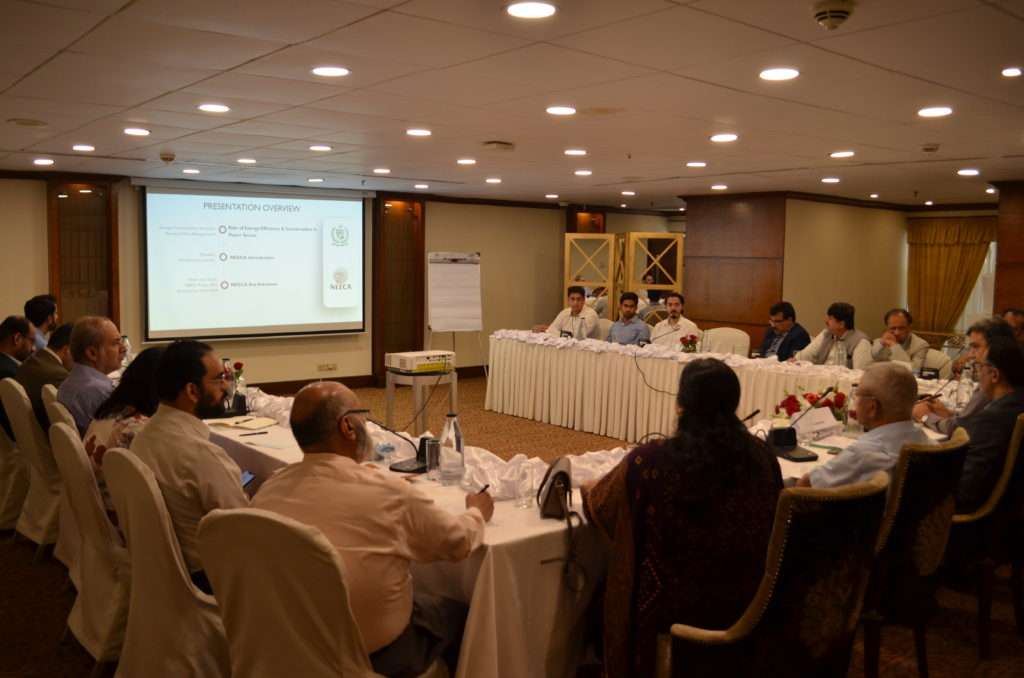
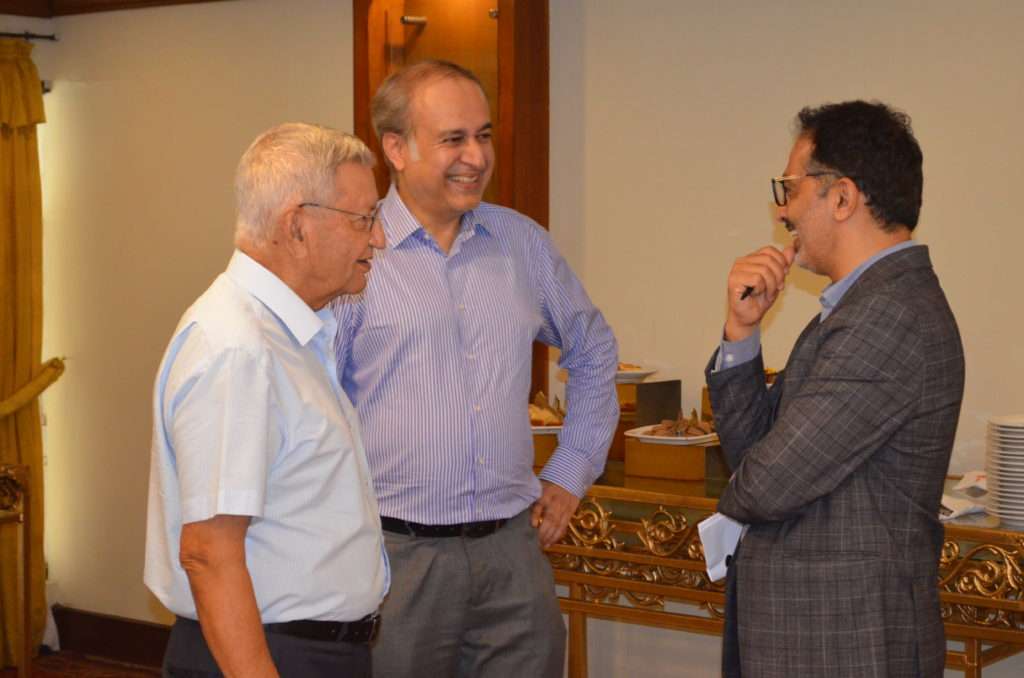
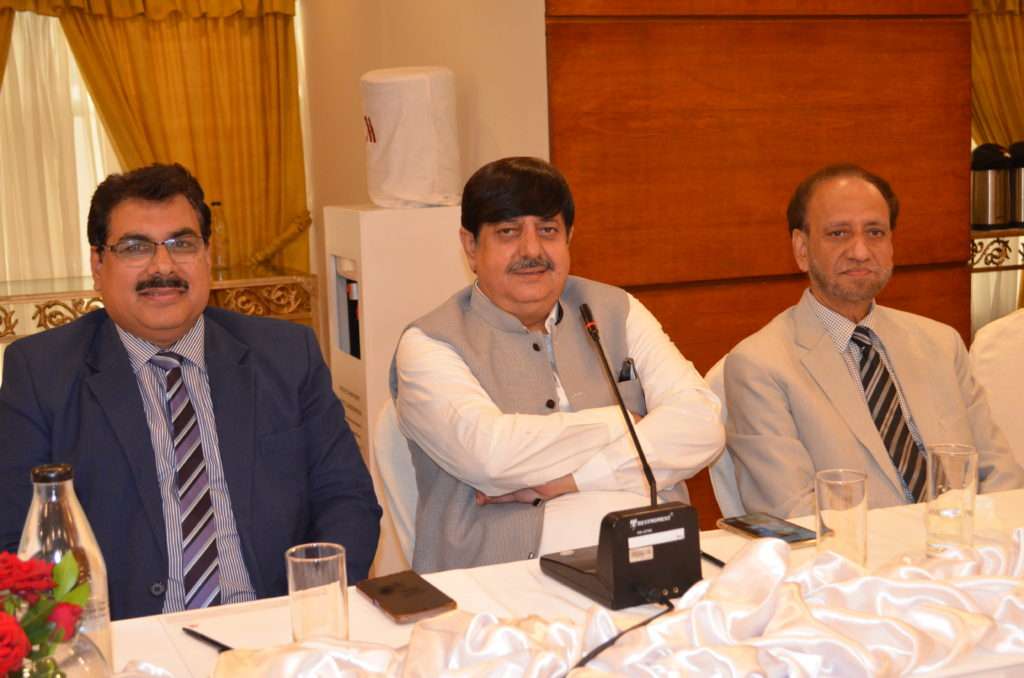
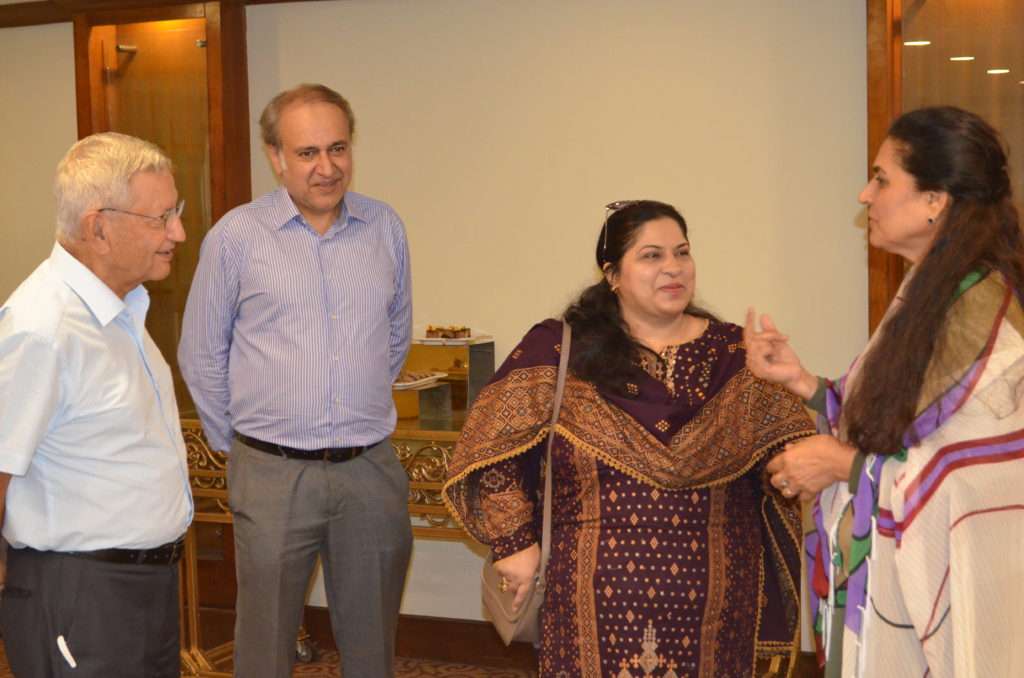
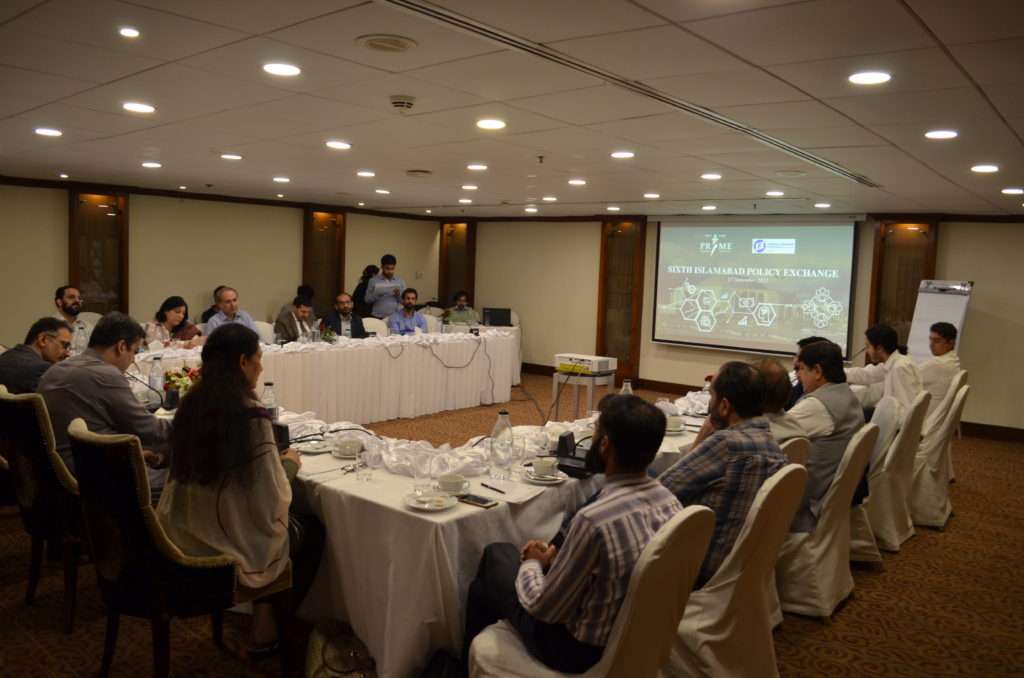
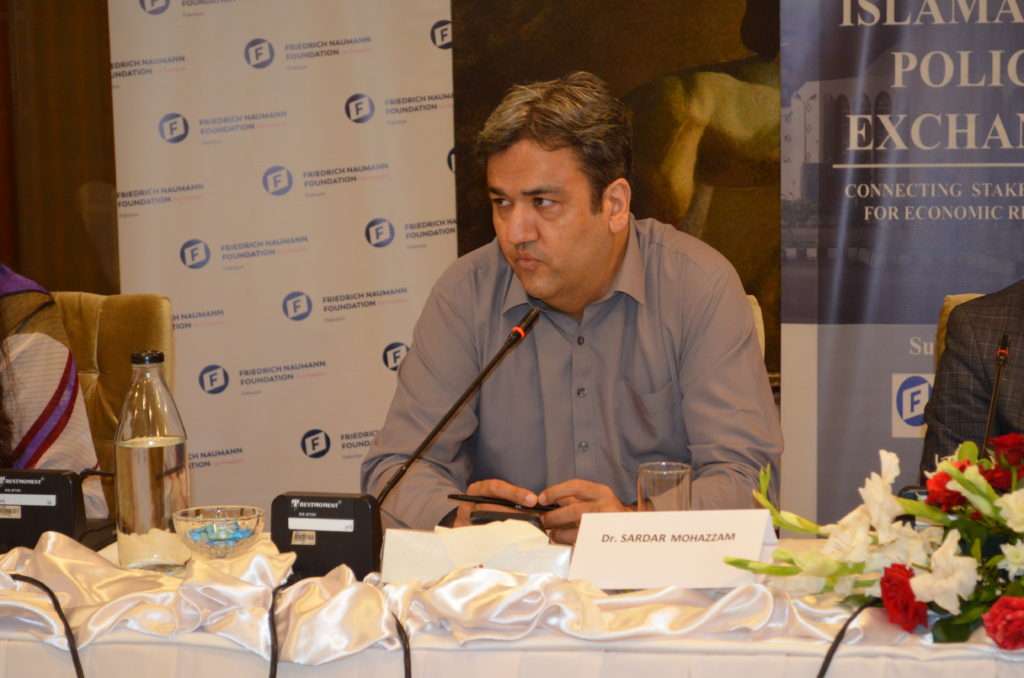
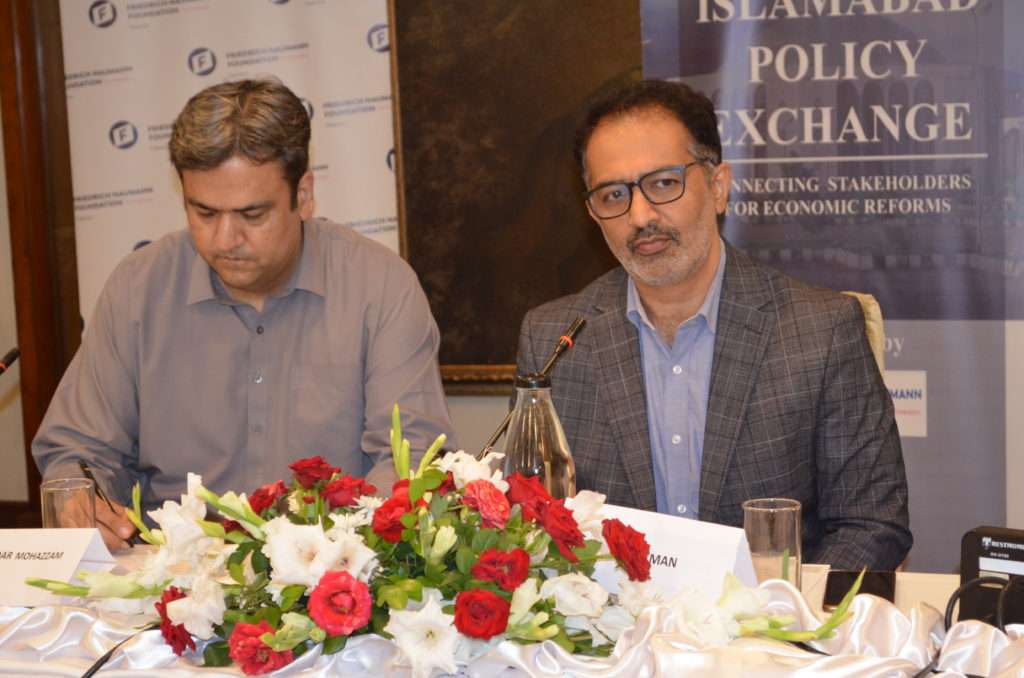
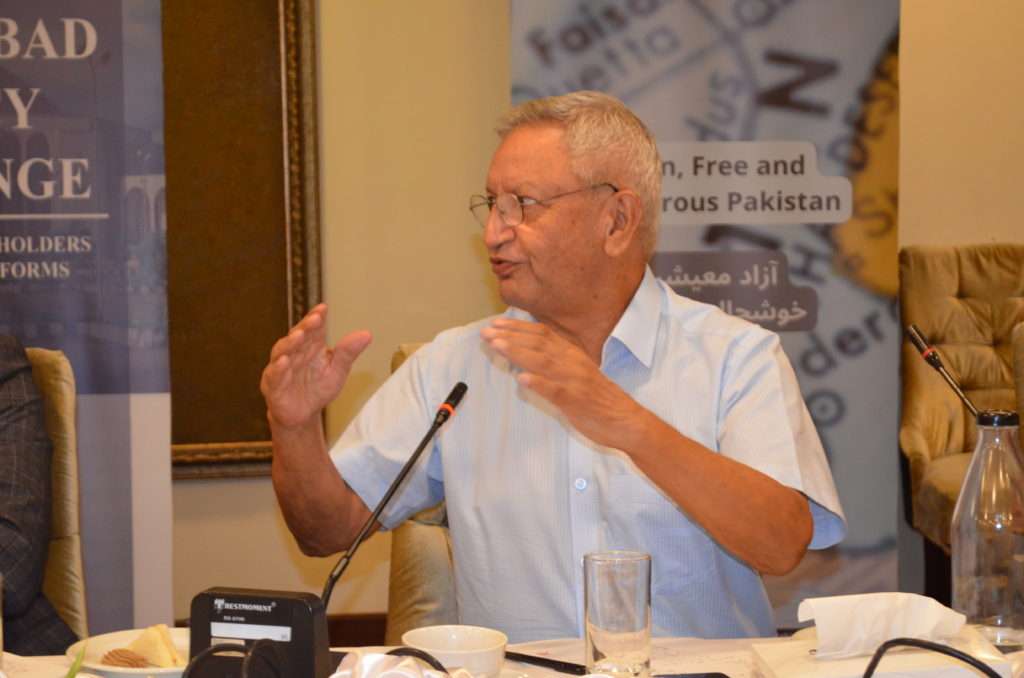
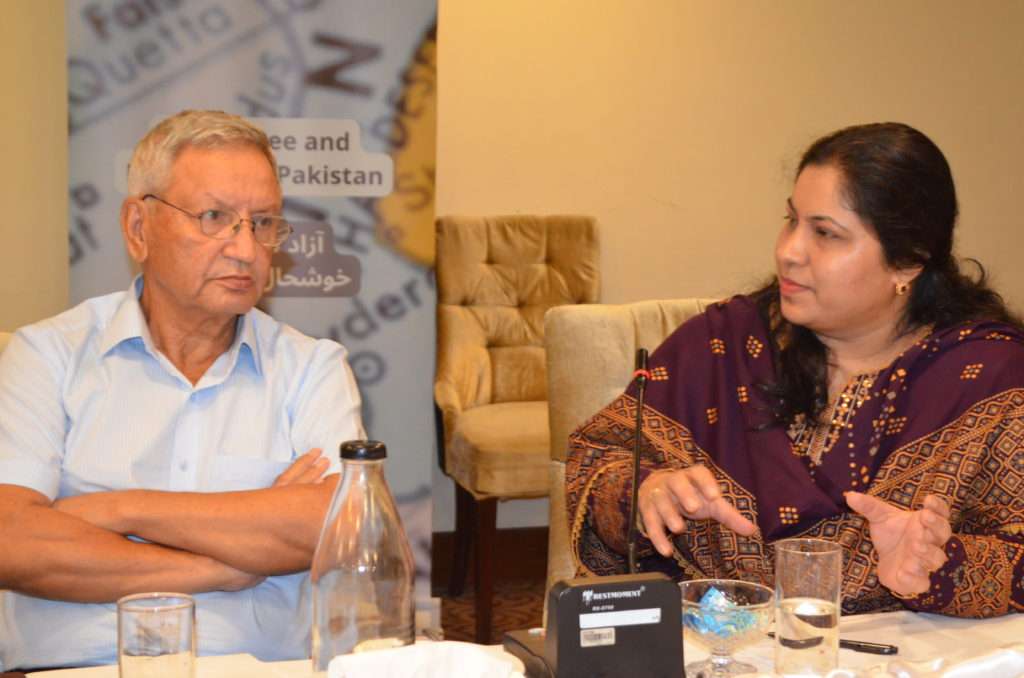
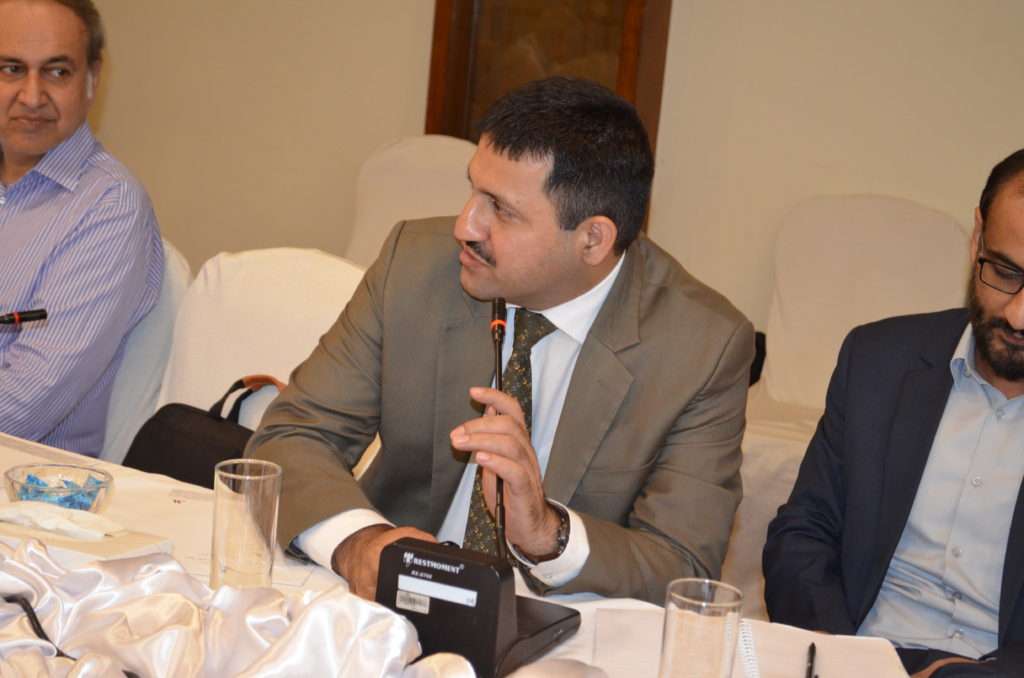
For inquiries, please contact farhan@primeinstitute.org or call at 03315226825
In a recent interview, the former Finance Minister, Miftah Ismail,advanced a notion that Pakistan's economic woes could be resolved by increasing exports by $20 billion. This proposition prompts a crucial inquiry: would this remedy indeed alleviate our economic challenges if it led to a corresponding rise in imports of equal or greater magnitude? One cannot dismiss the potential resurgence of a current account deficit as imports escalate, possibly by $40 billion or more. The question thus arises: did our substantial curtailment of imports in the last few years genuinely yield any substantial improvement?
Miftah Ismail's stance isn't an isolated perspective. Over the recent years, a clamor around the current account deficit has echoed amongst financial managers and economic pundits alike. The prevailing consensus among these opinion leaders suggests the pursuit of a nationalistic policy involving import tariffs, export subsidies, and protectionist measures. A common observer of television broadcasts might conclude that only exports hold the key to a nation's prosperity while imports stand as a threat to its very way of life. Trade deficits are portrayed as the road to economic destruction.
This line of thinking corresponds to a school of thought known as mercantilism. This doctrine strives to avert potential current account deficits or to achieve a current account surplus, employing tactics aimed at accumulating monetary reserves via a positive balance of trade. While comprehensible, it's no wonder that many individuals are swayed by this perspective, perceiving trade as a competition centered on exports and harboring suspicions that other countries inflict harm by providing us with quality goods at a reasonable cost. This palpable misunderstanding fuels the fervor around import substitution, irrespective of production quality and opportunity cost considerations.
To delve deeper into this perspective, consider a hypothetical yet illustrative trade example. Imagine a scenario where we discover intelligent life on Mars, prompting us to export wheat, rice, and vegetables to this celestial sphere due to their inability to cultivate these crops. One might wonder: what's our gain in this trade when the exported crops effectively mean they can't be consumed by us? Would we truly benefit from such trade? After all, it represents the ultimate dream of a trade surplus. The answer is no. Our actual gain from this trade scenario hinges on receiving something in return that we value more than the goods exported — perhaps precious minerals. In the realm of trade, the true advantage stems from imports, making exports nothing more than a cost required to obtain those imports. The same principle resonates within international trade among nations: exports facilitate the acquisition of imports, which is the ultimate objective. It allows us to import items that are either difficult for us to produce or at least challenging to produce at a low cost. The emphasis invariably rests on maximizing the value of imports.
Then, why is a trade deficit often perceived as problematic? In truth, a trade deficit poses no inherent issues, as trade is primarily about imports, not exports. Managing the current account deficit lies beyond the purview of the government; it’s a solution trying to find a problem. Trade occurs between private individuals and enterprises, and the government should refrain from financing consumer preferences, much like it refrains from financing the foreign debt obligations of private businesses.
In instances where imports surpass exports, equilibrium is restored through adjustments in the exchange rate. Regrettably, governments are consistently preoccupied with either controlling or exerting influence over the exchange rate, much like they do with various other essential commodities. Ironically, many of those who endorse price controls on commodities passionately advocate for a free-market approach concerning exchange rates, perhaps persuaded by the clearly evident outcomes in this particular situation. However, market includes two components: demand and supply. So, restricting imports is still a market manipulation and does more harm than good.
Politicians often highlight export figures as a yardstick of success, acting as if these numbers must be attained at any cost. The notion of using subsidies is thus put forth as a mechanism to bolster competitiveness. However, international trade is not a competition for exports, it’s a cooperation. Just as trade with our local grocery store is not a competition. When governments extend subsidies, they essentially prioritize the interests of specific groups, usually consumers, which enhances their welfare at the expense of broader societal economic welfare. Subsidizing exports takes this a step further, amplifying the welfare of foreign consumers at the expense of domestic welfare. Such a situation is inherently lose-lose and ultimately favors export-oriented companies that are inclined towards seeking special privileges, a trend that has been unfolding.
Furthermore, there's a growing obsession on import substitution, yet a pertinent question remains: at what cost? One must first probe why certain products are not domestically manufactured or grown. Often, the reason is their elevated cost or inferior quality. Would anyone willingly purchase an inferior product at a premium price and feel content? The goal should not involve rejecting cost-effective imports to manufacture everything domestically. Pursuing self-sufficiency leads down the path to impoverishment. If China offers us superior products below cost, the sensible response is to welcome these imports with gratitude. There is no good reason why we should object to the foreign aid that we can receive through the imports subsidized by the Chinese government.
This brings us to the crux of the matter: the actual predicament. As previously explained, a current account deficit is not a problem at all. The true challenge lies in the government's incapacity to honor foreign debt obligations due to its fiscal imprudence and its inability to broaden the tax base. Undoubtedly, it presents a significant concern of utmost national consequence, requiring a host of governmental actions to ensure the sustainability of debt payments. However, addressing the current account deficit is not among these necessary measures.
Before making any decisions, it's imperative to embrace and acknowledge the hard-hitting economic realities at play. The gradual adoption of free trade and a market-driven exchange rate holds the potential to strategically harness our comparative advantage. This, in turn, would allow us to manufacture a specific product or service at a significantly reduced opportunity cost compared to our trade partners. Rather than being fixated on the production of costly goods for local consumption or camouflaging the costs of exported items through subsidies, the focus should pivot to reducing business costs by removing unnecessary obstacles, facilitating the unimpeded flow of capital and resources into sectors where our comparative advantage thrives.
Consequently, such a stance would set the stage for market dynamics to organically shape the economic landscape, liberating resources from wasteful rent-seeking and inefficient high-cost production. Ultimately, consumers would reap the rewards by gaining access to the best bargains from every corner of the world, while exporters could reap sustainable profits and heightened productivity without depending on subsidies or hampering national economic welfare.
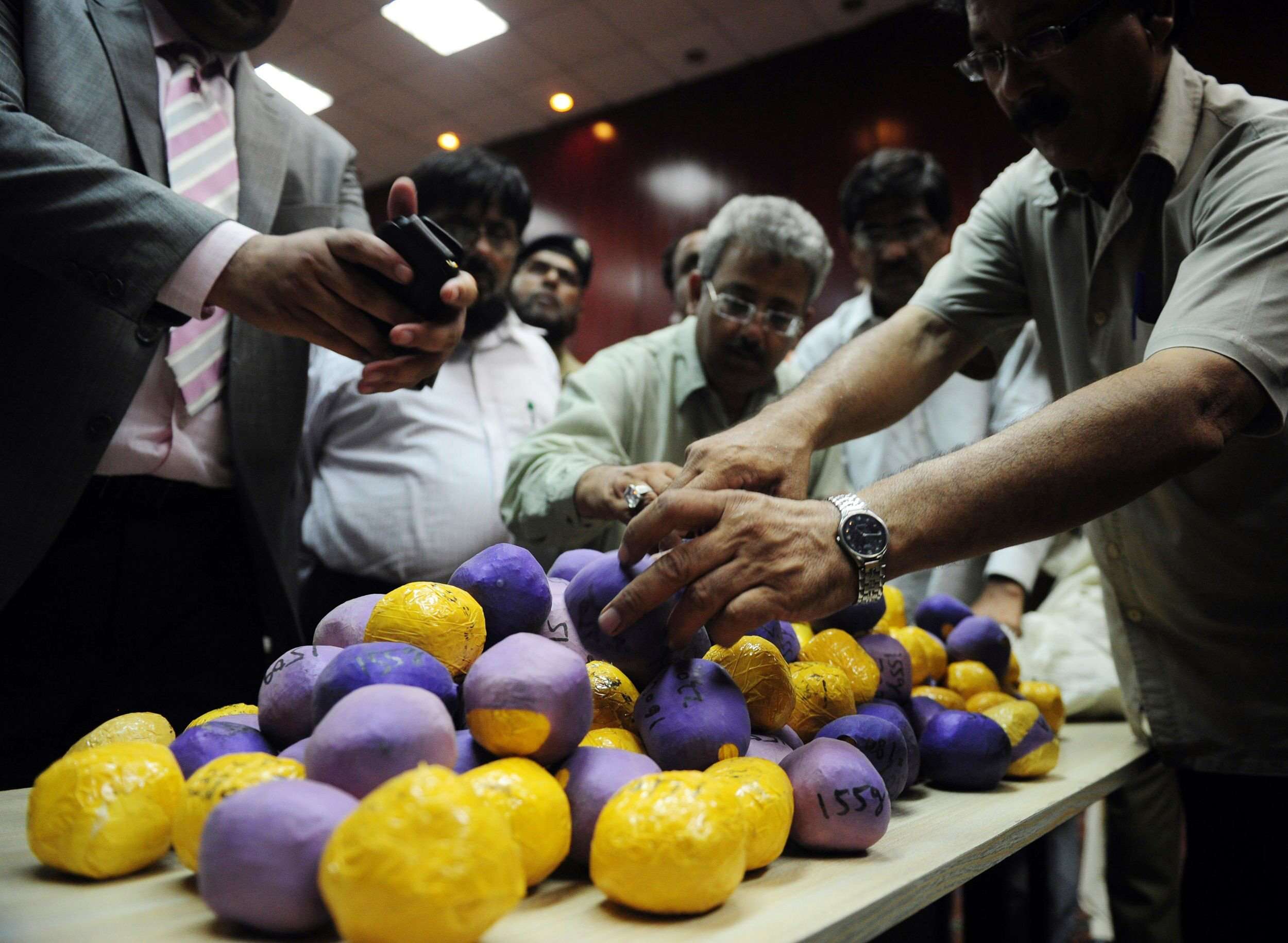
As a transaction of otherwise legal goods, smuggling is no different than trade, except that there is no government involved in this, at least in its formal and institutional meaning.
If smuggling of any product is on the rise, it implies that tariff rates in the case of imported goods and excise duties in the case of locally manufactured items have been set too high compared to prices of similar goods available in bordering countries.
It is well acknowledged that Pakistan’s import taxation (customs duties, additional duties, advance income taxes, advance sales tax, etc) results in probably the world’s highest ratio of import taxes as a percentage of total taxes collected in the country.
This poses a significant barrier against competitive products, which depend on competitive prices. Effectively, this import taxation system is a tax on exports.
Another way to look at smuggling is the impact of increase in excise duties on products made in Pakistan. A notable rise in excise duty usually leads to increase in the flow of illicit goods – cigarettes are the case in point. Last year, a significant rise in excise duty led to increase in prices and hence the inflow of illicit and counterfeit products.
Pakistan has already seen results of a complete ban on imports, which proved to be disastrous for productive and export sectors of the economy, while bringing short-term advantage in terms of reduction in trade deficit.
While large and formal firms were badly hit by these general restrictions on imports, the small and medium-scale enterprises increased their reliance on imports through informal means, ie smuggling. This led to a decrease in collection of customs revenues as well. Smugglers came to the rescue of SMEs.
Recently, a significant increase in smuggling has been observed in the case of petrol. If we allow Iranian refineries to sell petrol directly to Pakistan, the smuggling of petrol will vanish in one day.
Let’s now consider smuggling of currency. Our former finance minister believed that dollars are being smuggled in huge quantities, causing its appreciation. It is correct that there were a couple of successful raids in which dollars were forfeited, however, it should not be generalised. But for a moment, let’s assume he was right.
A sudden rise in dollar smuggling, if it happened, also signalled that the policy created arbitrage opportunity, which then increases the physical flight of dollars. Thus, once again, smugglers provided a signal to policymakers.
We now know clearly that the difference between open market and inter-bank rates was a signal of policy gap itself.
In a country where incomes are not rising whereas prices are on an upward spiral, smuggled goods, often less costly than “taxed goods”, offer an alternative to low-income households as well as street vendors. We see this in many large-scale markets.
Let’s take the recent seizure of NLC trucks where sugar was being “exported” in the name of other goods.
This also occurred because the government refused on-time permission to industrialists to export sugar, which was trading at a much higher rate before the world market crashed. Thus, the traders who were using those trucks also signalled a policy correction.
Whenever we hear about smuggling, the recommendation is to always take strict enforcement measures on borders, by increasing surveillance and security check posts in border areas.
In a system, where such security arrangements can be breached or rather purchased easily, these policies only increase the cost of goods but do not reduce the quantum of smuggled goods.
In Pakistan’s social system, it is often observed that smugglers become very religious and perform pilgrimages. Smugglers should indeed be rewarded for their service to economic and policy systems.
This Article was originally published in The Express Tribune on September 11, 2023.
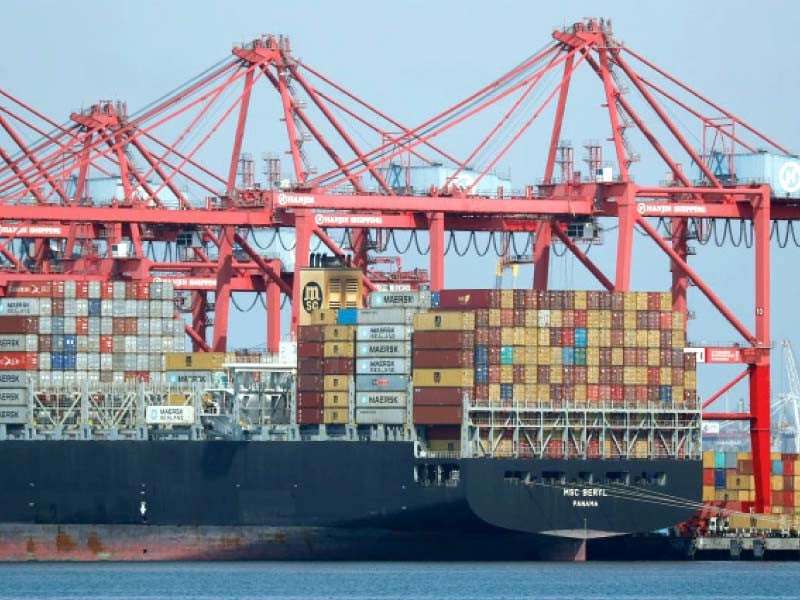
Last week, I had the opportunity to visit two large factories, both operating within special economic zones, supplying goods for the international market while creating job opportunities and fostering technological advancements for the domestic market. These firms operate in competitive global markets and serve as prime examples of the untapped potential that lies within Pakistan, encouraging investors to kickstart businesses. In this article, I will delve into the factors hindering our ability to generate sustained economic growth in the country, while drawing insights from these successful examples. This discussion is imperative given the concerted efforts by the country’s leadership, both civil and military, to encourage foreign investments as a means to bolster our foreign exchange reserves.
First and foremost, let’s take a look at the bigger picture. Pakistan was on the verge of default not too long ago, until a high-level discussion between Pakistani, US, and International Monetary Fund (IMF) leadership culminated in another IMF assistance package, the Stand-By Arrangement, providing a short-term financial boost of $3 billion. While the IMF diplomatically states that this programme “builds on” efforts under the Extended Fund Facility (EFF), it is evident that the EFF fell short—a failure that both IMF and Pakistan must acknowledge and shoulder.
A more accurate summary would attribute this shortfall to “policy missteps.” The major blunders were the restrictions imposed on imports and interventions in the forex market—measures that did more harm than good. While Pakistan may have saved $10 billion through these actions, it ended up losing even more through reduced exports and remittances. Importantly, these actions eroded the confidence of Pakistan’s existing private sector.
There’s a consensus that Pakistan lacks the necessary foreign exchange reserves to meet its external obligations. Our sources of foreign exchange—exports, remittances, and foreign investment—consistently fall short of requirements, leading to a perpetual balance of payment crisis, compelling successive governments to seek assistance or loans. The objective has always been to maintain foreign exchange reserves equivalent to at least three months’ worth of imports. While external inflows such as debts, rollovers, and aid provide temporary relief, the underlying issue remains unresolved, and we continue to kick the can down the road. However, the roadblock we encounter each time seems to get larger, as seen in the recent accumulation of reserves through roll-overs, loans, and aid.
Enter “Plan B,” recently unveiled as an alternative strategy. This plan aims to attract foreign exchange through inter-governmental transactions, wherein the Government of Pakistan (GoP) can sell, lease, or outsource its assets to international players to raise capital. The Pakistan Sovereign Wealth Fund is a key component of this strategy, encompassing at least seven state-owned enterprises (SOEs) with assets totalling Rs2.3 trillion or $8 billion. Once enacted, these SOEs will be exempt from the Privatisation Commission, SOE Act, and Procurement Act. The Fund’s shares and management will be presented as investment opportunities to “friendly countries.” The potential costs and benefits of these inter-governmental deals remain shrouded in official secrecy.
Yet, an alternative roadmap exists—a “Plan C” or rather “C2,” where C signifies a “Capitalist Charter.” This roadmap has three main pillars: low taxes, open trade, and a level playing field. Businesses operate to earn profits, and in a country where corporate taxes consume over 50% of income, genuine investments are hard to attract. We need to significantly lower income tax rates for businesses and salaried individuals while streamlining exemptions and raising thresholds. An effective tax policy could serve as a powerful investment policy if it guarantees a low rate for a 10-year span. Alongside reduced taxes, the country must rationalise and decrease tariffs, encompassing all forms of import taxation. No other country relies on tariffs to the extent that we do for revenue. A regime of predictable, low tariffs aids businesses in planning production and inventories. Import restrictions should never again be employed as a tool. Lastly, fostering a business-friendly environment entails eliminating unnecessary hurdles and roadblocks, ensuring a level playing field for all enterprises. The state and its institutions should collaborate with, rather than compete against, the private sector.
This “Plan C” holds more promise than both “Plan A” (IMF) and “Plan B” (Sovereign Wealth Fund or Special Investment Facilitation Council (SIFC)). “Plan A” has faltered, and “Plan B” is unlikely to deliver sustained and inclusive economic growth. We must work alongside Pakistan’s homegrown entrepreneurs and capitalists. To create a credible alternative to the state-linked elite, we need to cultivate a counter capitalist elite that isn’t reliant on state largesse. This transformation begins with reducing the state’s scope and preventing its expansion into the private sector.
This Article was originally published in The Express Tribune on August 07, 2023.

ISLAMABAD: It seems that the caretaker cabinet is setting its eyes on the future instead of just steering the country through next general elections.
There are two statements made by caretaker Minister of Commerce and Industries Gohar Ejaz, which make me think this way.
He has recently called for establishing new business parks “to consolidate Pakistan’s global trade connections. These parks or facilitation centres for traders would be designed to serve as hubs for foreign traders, enhancing trade relationships and driving economic growth.” He believes these business parks are good for trade connectivity.
Ejaz has also announced an export target of $80 billion and a “new” strategy of targeting specific countries and by devising a new trade policy framework.
This is wrong on a number of grounds. First of all, the caretaker cabinet should not be allowed to make any pronouncements with long-term consequences for economic policies.
Setting up new business parks or devising new trade policy frameworks are ambitious undertakings.
Similarly, following an export target of $80 billion from the current level of $40 billion is a very ambitious plan. It is unrealistic to achieve it within the period for which the cabinet has sworn in.
The appointment of an industrialist on a public position is also a serious conflict of interest. Public position holders, even if they are financially honest, become privy to critical information much ahead of time that they can easily use to gain private benefits, even if these gains are to materialise in the future.
A caretaker government for three months or six months cannot be taken seriously by investors and diplomats who are looking for a long-term and stable political outlook. In fact, one wonders if this should be taken too seriously by members of the cabinet themselves.
A best caretaker government is no caretaker government. There is hardly any country in the world which practices this arrangement. The sitting government continues till the holding of elections and transfer of power whereas the Election Commission is much more empowered.
If the caretaker government continues for an extended time period, as it is generally believed, till March 2024, then their main mandate is to ensure that Pakistan is not worse off than it is today in terms of economic stability.
That means, primarily, stabilisation of exchange rate, which demands keeping the forex market free from any kind of intervention. This, in turn, is the function of central bank, and not of the federal government, which should continue to exercise its constitutional mandate.
There is another news recently that electricity distribution companies will be handed over to provincial governments. While the caretaker government does not have a mandate to take such a decision, the transfer to provincial governments is hardly going to be a solution.
The solution lies in creating competition in the electricity distribution market and not in “provincialisation” of DISCOs. However, it will help in reducing the federal government’s budget deficit as a significant chunk of subsidies is allocated for the power sector.
Expectations have been built that the caretaker government will take some “tough” economic decisions which elected governments usually hesitate to undertake.
While political governments may be happy to pass on the buck to an interim setup, this does not solve fundamental issues that require consensus on restructuring and reforms.
One of the long-term challenges that Pakistan will have to face is its debt management. As the IMF standby arrangement continues to hold, there should be public discussion on various options for Pakistan’s next government including that of debt restructuring coupled with economic reforms.
The debate can help guide political parties in formulating their manifestos as they prepare for next general elections.
This Article was originally published in The Express Tribune on August 28th, 2023.

Pakistan has a rich history of state-run enterprises marred by inefficiencies and lackluster performance. There is a plethora of challenges that have hindered their growth and effectiveness. Bureaucratic red tape, political inteference, misaligned incentives, and inadequate accountability mechanisms have contributed to a lack of agility and innovation within these organizations. As a result, their ability to adapt to changing market dynamics and technological advancements has been severely compromised.
Such inefficiencies not only stifle the potential for these enterprises to flourish but also strain the nation's economy, leading to wasteful allocation of resources and diminished competitiveness on the global stage. While the prevailing discourse among policy makers and opinion makers leans towards endorsing the state's involvement in running profitable enterprises, it is essential to critically examine the potential ramifications of such a proposition.
Advocates of a balanced economy often argue for a mix of state-owned enterprises (SOEs) and private sector involvement. Some contend that past privatization efforts in the 1990s did not yield the expected benefits for the country, and they maintain that profitable SOEs should not be privatized at all. While this argument may hold merit when considering accounting profits alone, it overlooks the critical concept of economic profit and the accompanying opportunity costs that are invariably at play, whether consciously acknowledged or not.
Privatization facilitates optimal allocation of resources, improved service quality, and enhanced efficiency, ultimately driving economic progress. A prominent example of successful privatization in Pakistan is evident in the banking sector. Private banks have surpassed state-owned banks in terms of return on assets (ROA) and return on equity (ROE), leading to heightened efficiency and profitability.
Let us examine the case of the National Bank of Pakistan (NBP), a state-owned bank. NBP recorded an after-tax profit of 30.4 billion rupees last year and has consistently demonstrated commendable profitability over the years. On the other hand, the Muslim Commercial Bank (MCB), once state-owned but privatized in the 1990s, achieved an after-tax profit of 32.7 billion rupees and maintained an equally good track record of profitability. At first glance, both banks appear to be performing equally well, with nearly indistinguishable profit figures. However, this simplistic view fails to consider the opportunity costs arising from inefficiencies.
When we examine the return on assets (ROA), a measure of how efficiently a bank utilizes its assets (mostly cash for banks) to generate a profit, MCB clearly outperforms NBP. MCB's average ROA is more than twice that of NBP's. Considering this significant disparity in ROA between the two banks, the opportunity cost incurred amounts to approximately 42 billion rupees in the last year alone, with an accumulated opportunity loss of 261 billion rupees over the past decade. These figures are substantial and demonstrate the necessity of considering the economic efficiency of SOEs beyond their superficial profitability. To put these numbers in perspective, the entire market capitalization of NBP currently stands at approximately 43 billion.
Indeed, we must not overlook the fact that a larger asset base can potentially limit a bank's ability to achieve equally impressive profits. However, it is crucial to recognize that the situation is even more concerning when it comes to smaller state-owned banks, which are performing even worse in comparison. The stark contrast in performance between private banks and state-owned banks becomes evident when we consider the average returns on their assets.
While some may argue the need for government involvement in running profitable SOEs, the argument for privatization becomes irrefutable when dealing with loss-making entities like Pakistan International Airlines (PIA). The accumulated loss of PIA, which now stands at a staggering 651 billion rupees, poses an alarming financial burden for the government and taxpayers alike. Such a colossal loss cannot be ignored. To illustrate the opportunity cost at hand, the amount is equivalent to providing wheat supply for approximately 37 million impoverished individuals for an entire year. This staggering figure underscores the opportunity cost of maintaining PIA under government control and highlights the potential to redirect these funds towards initiatives like poverty alleviation and infrastructure development.
In conclusion, the successful path forward lies in embracing privatization to unlock the true potential of SOEs. By reducing the government's grip on businesses, the country can harness the power of market forces to drive economic growth, allocate resources efficiently, and foster prosperity for its citizens. To achieve this, policymakers must fully grasp the concept of economic profit, recognize the opportunity costs associated with inefficiencies, and prioritize the long-term benefits that privatization can bring to the country.
Think Tank says Federal Budget Lacks in imagination and realism
Islamabad: In its quarterly assessment report, PRIME Plus, the Islamabad based think tank Policy Research Institute of Market Economy – PRIME, emphasized on the need for regulatory, structural and public sector reform, and said that the budget does not offer much in those terms.
PRIME states that The federal budget lacks any imagination apart from unrealistic and overambitious revenue collection targets.
The think tank noted that Taxes on salaried individuals as well as businesses and companies were raised and the tax burden on existing taxpayers has increased; while the government is failing at broadening the tax base.
PRIME judged this budget to be more complex than its predecessor. The budget is full of new tax exemptions, and not many previous exemptions have been removed. Tax enforcement will become more challenging, and the collections process will be costly and inefficient.
PRIME suggested that higher Taxes on existing base will hamper compliance, and will discourage new tax filers to enter the system. Companies are now more incentivized to find ways to minimize their tax liability
The report predicts that the privatization agenda has again been sidelined, and there does not seem to be much hope for SOE reform over the next 12 months. Efforts related to foreign direct investment seem to suggest that the government is interested in privatization after election year, but not much will feasible in the short run.
On a positive note, the think tank highlighted that the government has incorporated expenditure cuts into the budget, after insistence from IMF. The budget has a primary surplus. Process to decouple pensions from the budget has also been initiated.
Government has made major efforts to keep itself afloat. Help from friendly countries and IMF will help country get through election season and till the appointment of the new government. Pakistani Rupee should stabilize in the short to medium term.
Global and domestic Inflationary pressures persist, but are now slowing down. Further decline in macro-economic indicators might be stemmed.
For inquiries, please contact farhan@primeinstitute.org or call 0331-5226825

PRIME (Policy Research Institute of Market Economy) organized the 4th Islamabad Policy Exchange on 1st of June 2023. The event was attended by private sector, academia, Think tanks and Government representative.
The discussion centered on Privatization and State-Owned Enterprises (SOEs) Policy, with a particular focus on potential benefits and concerns related to privatization and state-owned enterprises. Additionally, the participants explored various perspectives on the matter, including challenges associated with state-owned enterprises, Public-Private Partnerships, historical role of PIDC (Pakistan Industrial Development Corporation) in development and the legal aspects of policy framing in this regard.
The Islamabad Policy Exchange is a forum for candid discussions for policy stakeholders, held under Chatham House rules.
During the deliberations, the esteemed participants engaged in a profound and insightful dialogue, thoroughly exploring various facets of privatization. Notable concerns were raised, encompassing weak competition, the challenge of securing expensive capital, restricted earning opportunities, inadequate regulatory oversight, and infrastructural challenges. Moreover, pertinent issues regarding Pakistan’s fiscal policy surfaced, which discourages innovation and investment due to the burden of high taxation rates and consequent decline in profits. Furthermore, the lack of clarity concerning the objective and procedural framework of privatization was thoughtfully addressed, consequently leading to reduced investor interest and minimal bidding in certain cases.
Some participants, on the other hand, presented an opposing viewpoint, arguing in favor of preserving state-owned enterprises. These supporters emphasized the potential benefits, such as the availability of low-cost capital for government use. In this context, examples from other countries were cited in which governments strategically subsidized enterprises, reaping benefits by promoting sectors such as tourism.
However, the discussions did not shy away from addressing concerns about state-owned enterprises. Notably, these concerns encompassed the financial burden on the national exchequer and the impediment posed to private investors due to limited free float shares. Moreover, bureaucratic, and governmental inefficiencies in the operation of SOEs were thoughtfully pointed out, raising pertinent questions regarding their alignment with the government's primary objective of promoting welfare as opposed to actively managing businesses.
In addition to substantive discussions, the conference meeting thoughtfully explored the legal aspects of privatization and SOEs, providing insightful references to relevant articles and amendments. To provide complete clarity on these distinct approaches, a strong emphasis was placed on distinguishing between privatization and public-private partnerships.
A historical perspective was also thoughtfully presented, providing valuable insights into the role of Pakistan Industrial Development Corporation (PIDC) in the nation's early development. This illuminating discussion emphasized the government's historical practices of establishing and then divesting enterprises.
Participants recognized the importance of bringing clarity to the objectives and procedures of privatization to address challenges associated with SOEs losses. Through transparency and informed decision-making, Pakistan can pave the way for efficient resource utilization and sustainable economic growth.

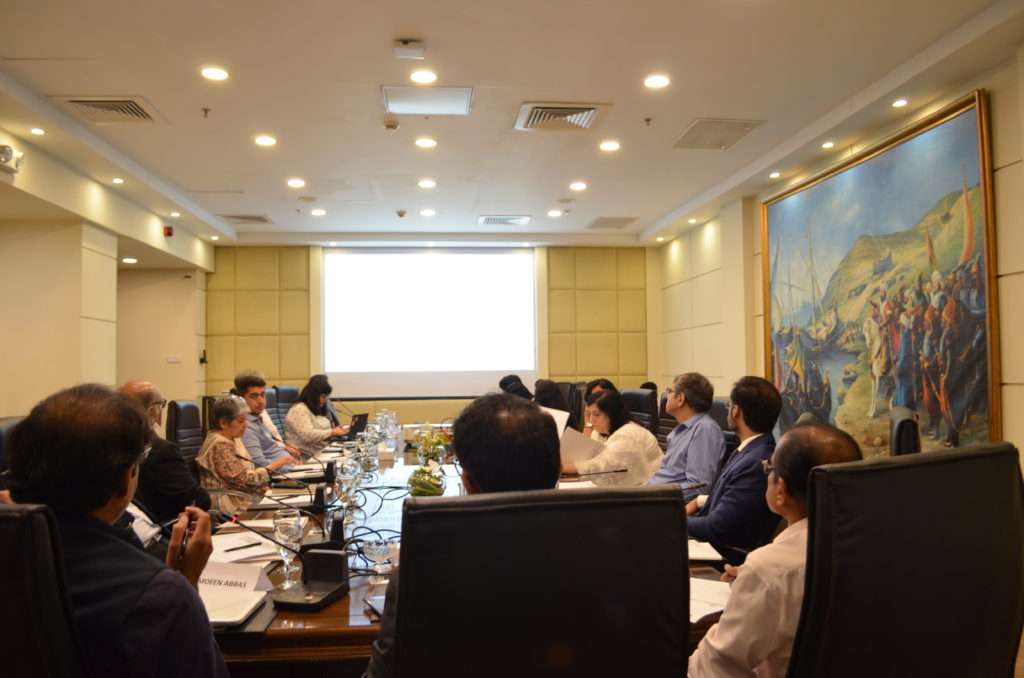
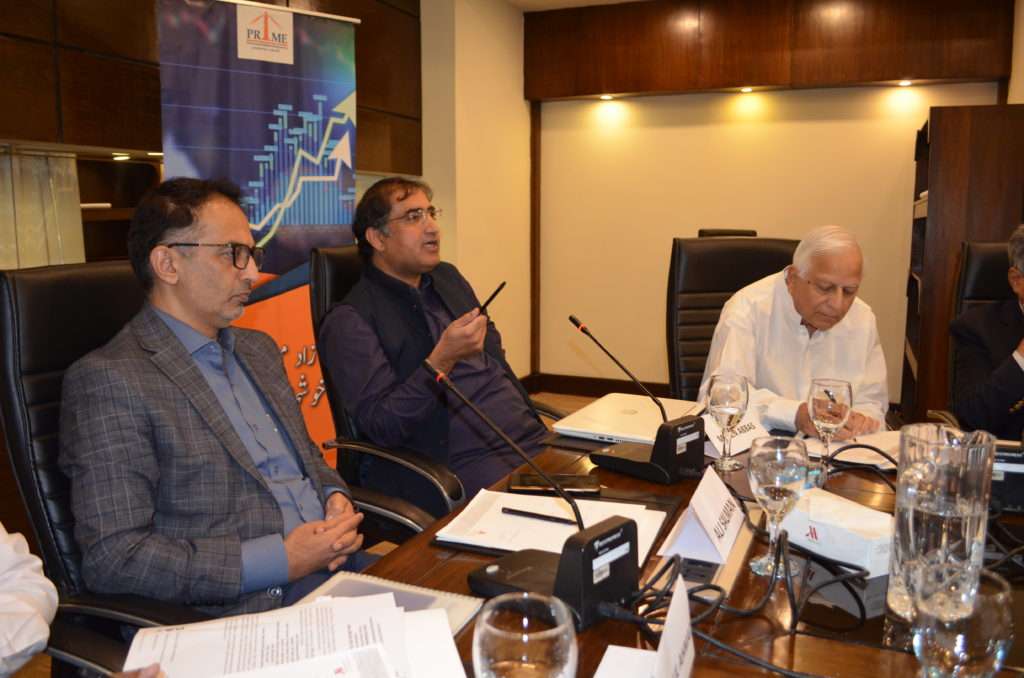
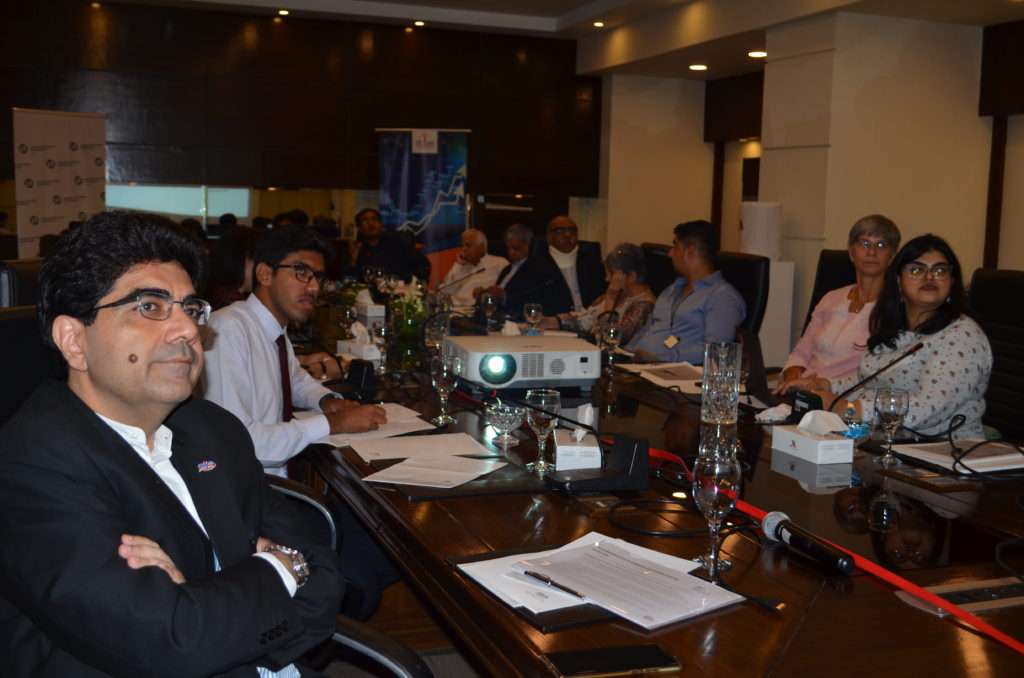
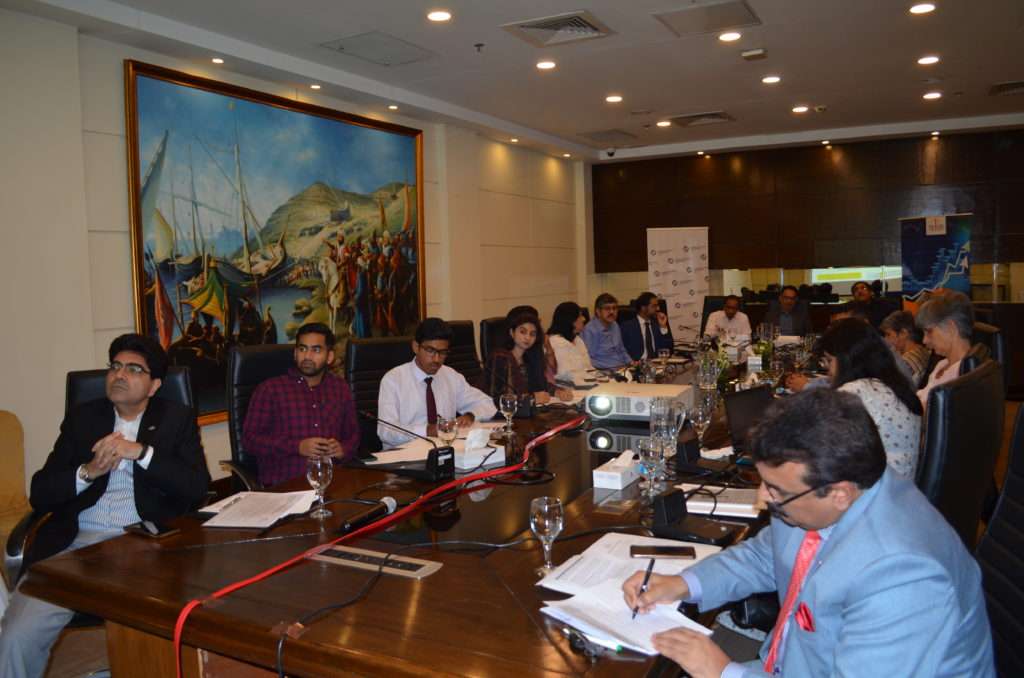
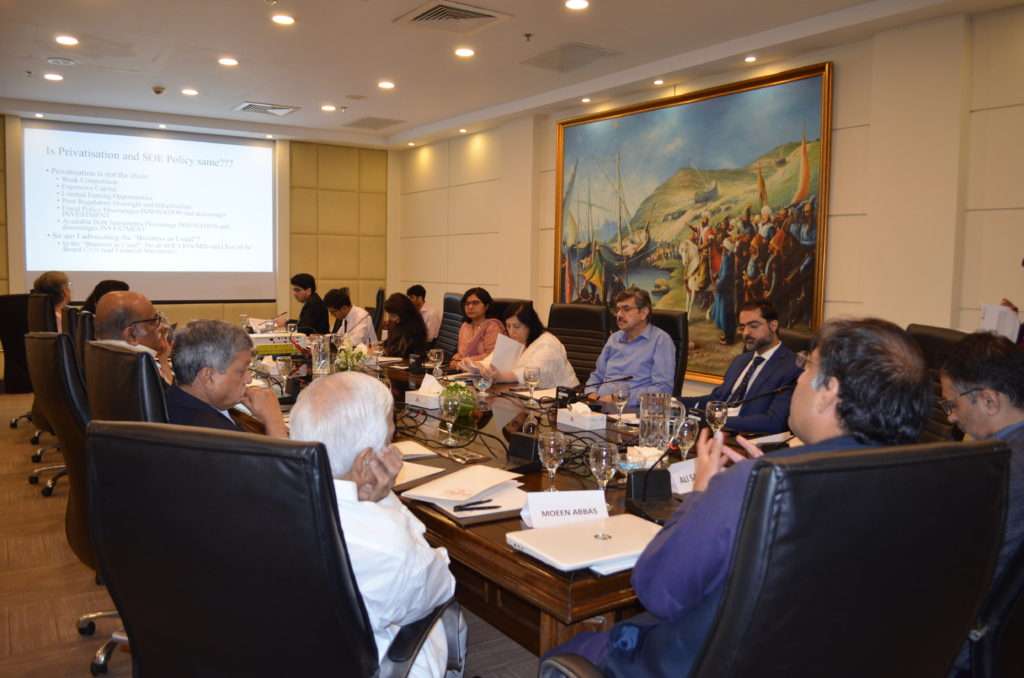
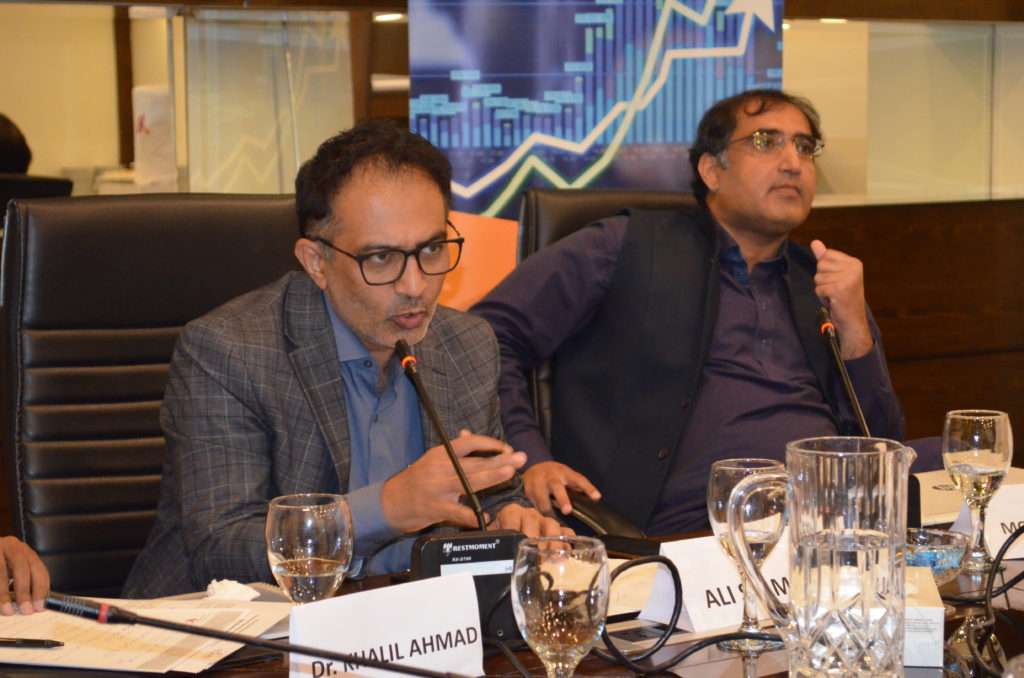
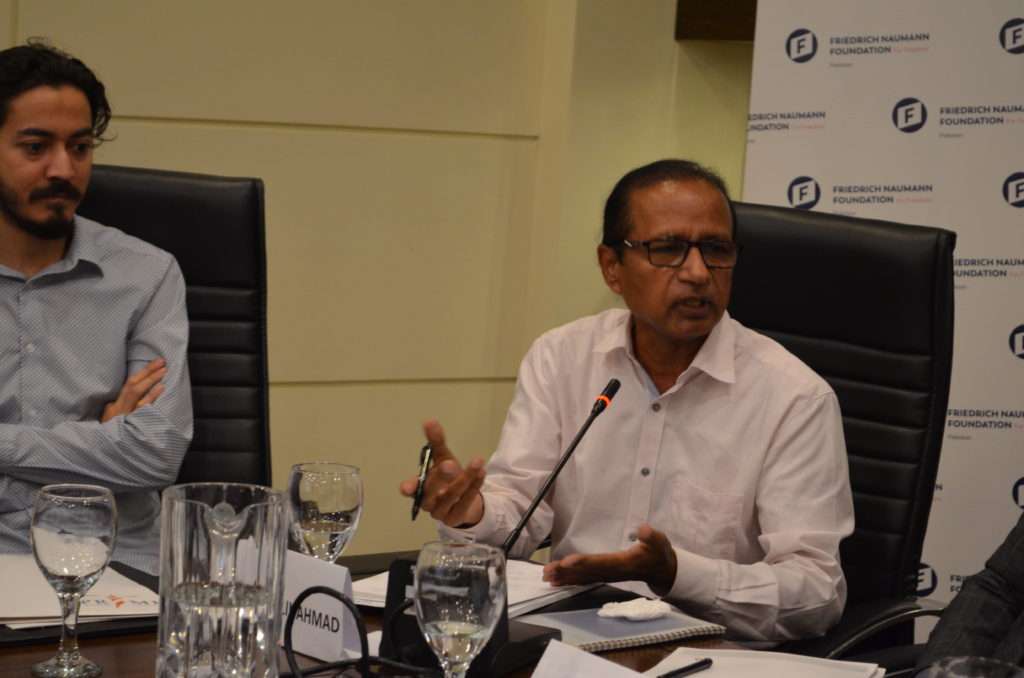
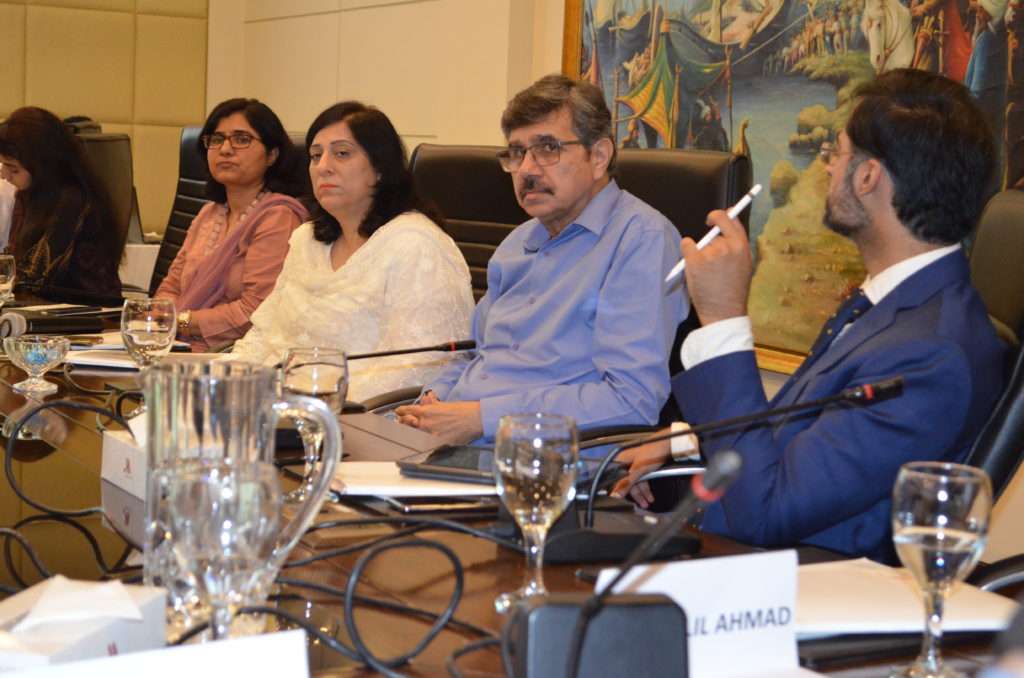

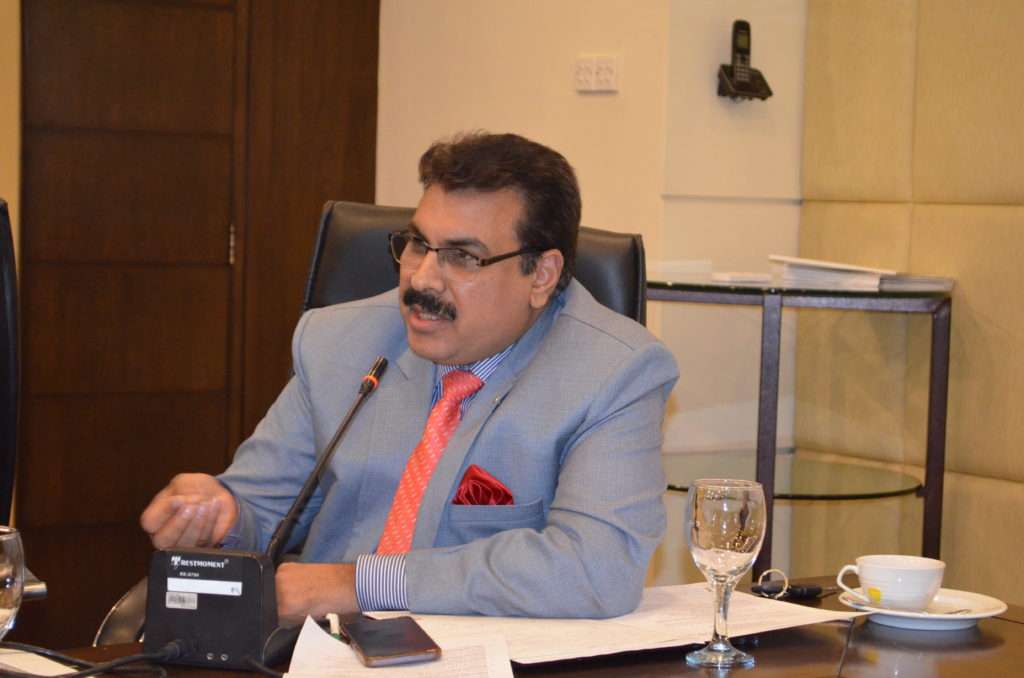
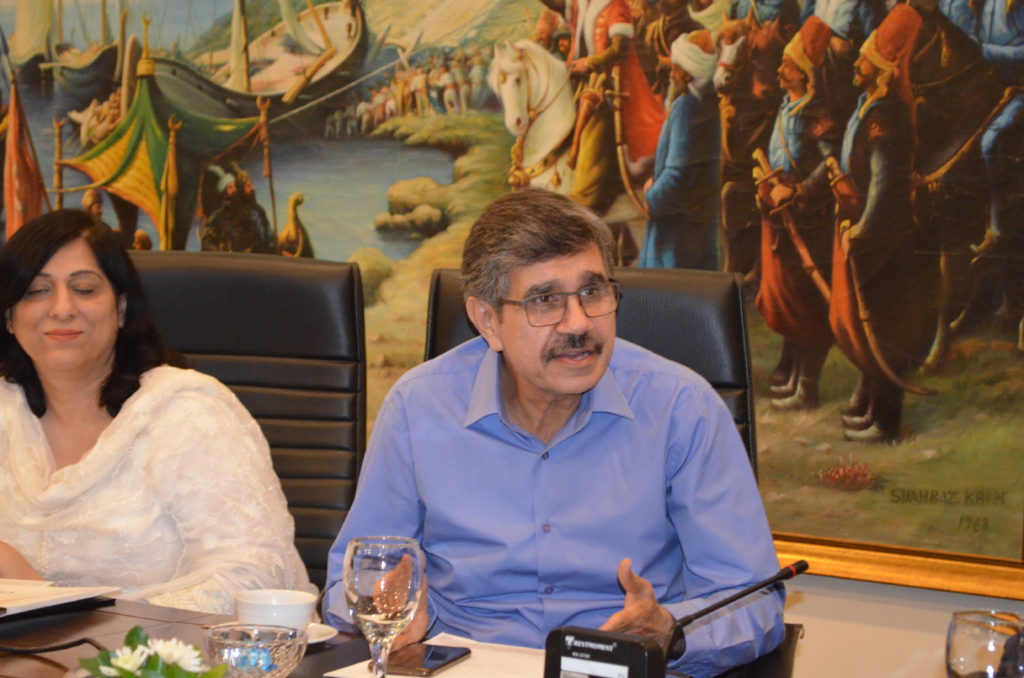
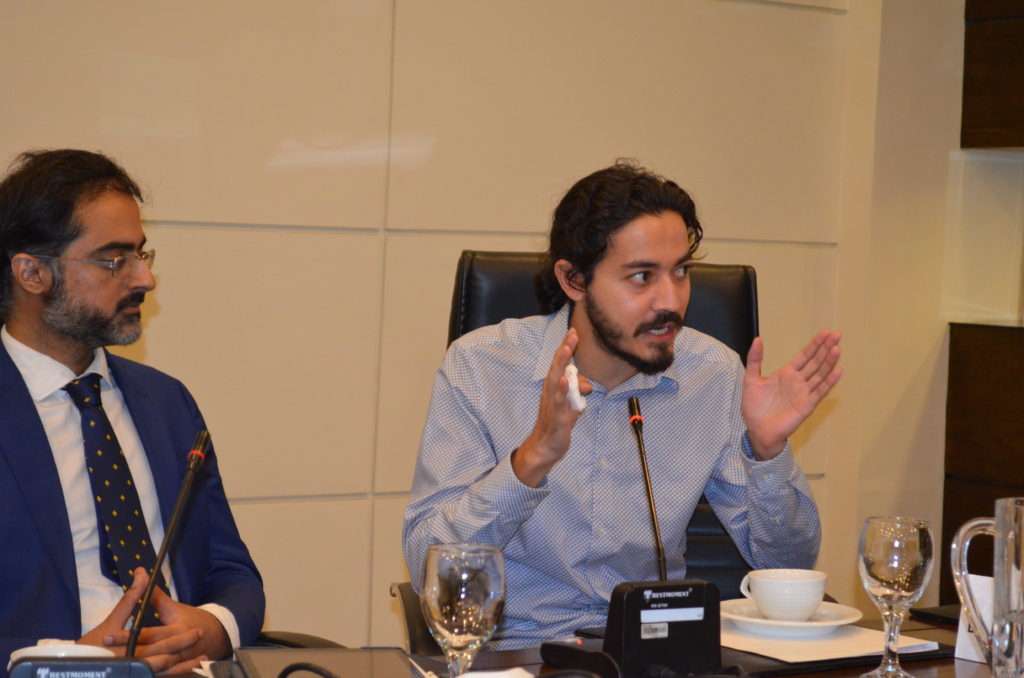

For inquiries, please contact farhan@primeinstitute.org or call at 03315226825
Debt issue stems from misaligned fiscal policies, bureaucratic red tape

Prior to the creation of the SIFC, these objectives fell under the purview of various bodies, ministries, and institutions including the Board of Investment, Council of Common Interest, Prime Minister’s Office, Ministry of Industries, Ministry of Finance, State Bank of Pakistan, Ministry of Commerce, and Economic Coordination Committee of the Cabinet. The inclusion of the army chief in this apex body is the most noticeable change, with the prime minister attributing economic revival and the International Monetary Fund (IMF) Standby Agreement to the army chief.
The stated goal of the SIFC is to generate $20-25 billion through foreign direct investment (FDI) in order to avoid a dollar shortage without incurring additional debt. While the goal is commendable, it is worth revisiting the latest success story of investment in Pakistan – the China-Pakistan Economic Corridor (CPEC). We can argue on merits and demerits, but CPEC remains the single largest Belt and Road Initiative (BRI) investment package in the world.
Two models of Chinese investment in recent years serve as examples, excluding the debt portion.
The first model is seen in the CPEC power projects, where investments were made in power generation with guaranteed returns on equity, backed by sovereign guarantees and capacity payments. Revenue is generated from users who pay in Pakistani rupees, while the government arranges dollar payments to independent power producers (IPPs). However, this model carries foreign exchange and non-utilisation risks. We have experienced both locking us into continuously rising circular debt, which has now spiked to $10 billion already only in the electricity market.
The second example involves Chinese investment in Pakistani industry, aimed at increasing productivity, production, job creation, and export income. Earlier, the news reported a Chinese company’s plans to invest $150 million in an industrial park on Lahore’s border with Kasur. It is said to house state-of-the-art fabric units, dyeing facilities and garment manufacturing units to export sportswear from Pakistan to the Americas, Europe, Asia-Pacific and other regions of the world. However, such investments in the private sector are rare, with most Chinese investment focused on energy and infrastructure projects managed or backed by the government.
The demand from China to relocate textile industries to Pakistan is evident, but it requires swift action and a favourable environment for setting up operations. These firms can’t wait for years to acquire land, get utility connections and clear all the red tape.
According to a report by the Pakistan Business Council (PBC), Islamabad has not been successful in leveraging CPEC to catalyse domestic private investment or attract non-China FDI.
The Chinese investment in power projects is driven by two models. The first model aims to tap into a large and growing consumer base in the market, with the state providing financial backing. However, under this model, we will end up paying more dollars than we receive, regardless of the success of the investment project.
The second model focuses on increasing local capacity to enhance exports and gain a larger share in the international market. With this model, we not only receive dollars through exports but also have the opportunity to repay investors based on the success of the project.
It is crucial for Pakistan to refrain from further infrastructure projects unless there are public-private partnership agreements that do not burden the country with more debt or convert investments into liabilities. Joint ventures within the private sector should be explored instead.
This is primarily Pakistan’s problem and not that of the IMF, creditors, or friendly countries. The debt issue stems from misaligned fiscal policies, bureaucratic red tape, and irresponsible practices of the federal government. Without a radical transformation of the economic policy landscape on the ground, high-level committees will yield little results. Credibility in profit repatriation promises cannot be established if repatriation is halted for extended periods. These counterexamples highlight the need to invest in the foundational pillars before constructing buildings.
